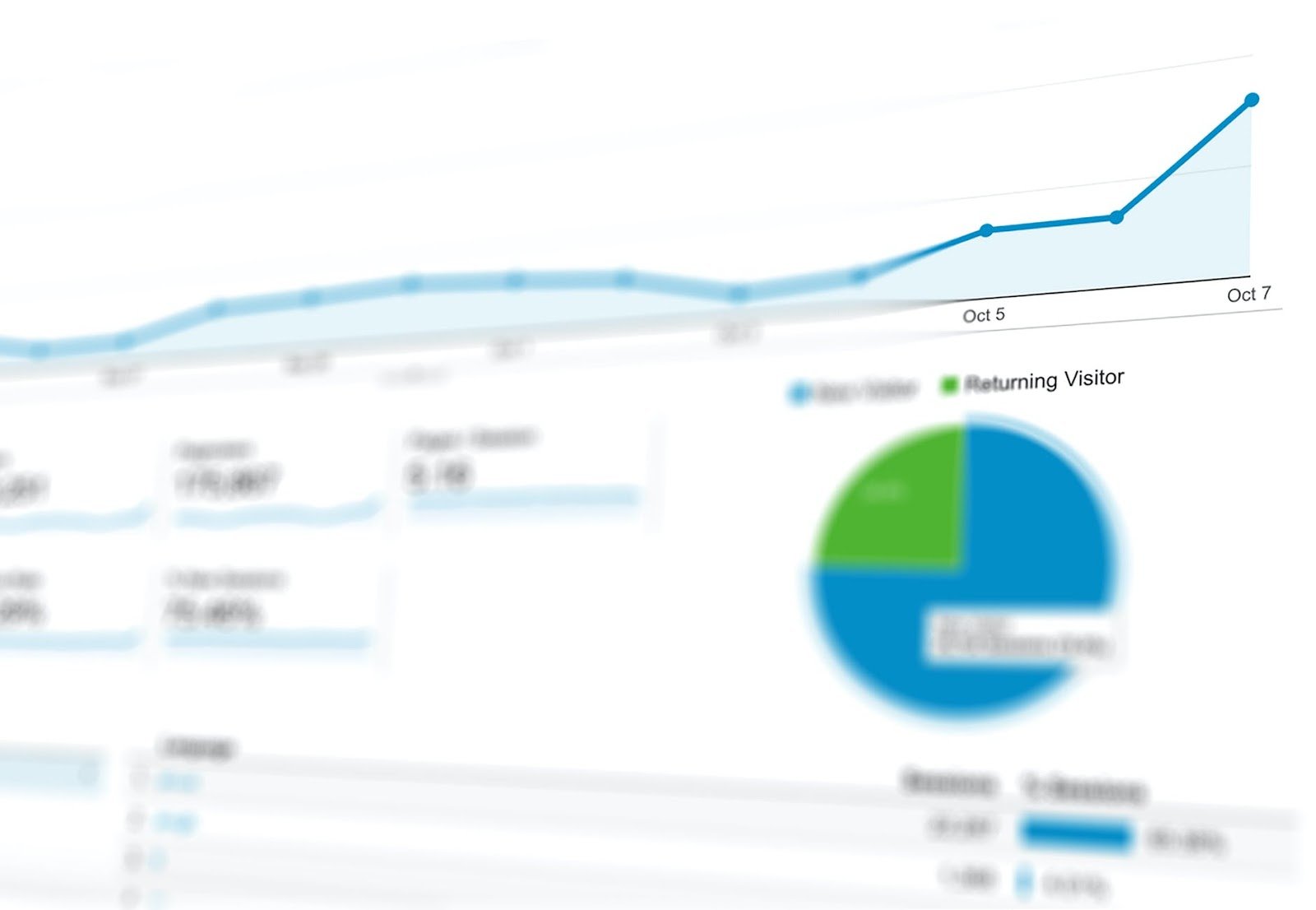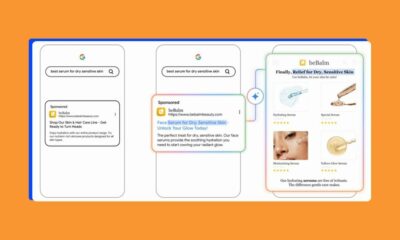MARKETING
These 20 A/B Testing Variables Measure Successful Marketing Campaigns

Contrary to widespread practice, marketing analytics expands beyond email marketing and can be applied to practically every other inbound marketing tactic — social media, blogging, landing pages, lead generation, and lead nurturing. The possibilities for testing your marketing campaigns are virtually endless.
While we believe marketers should constantly be testing their marketing efforts, the first step is identifying the different marketing variables you can test. And because so many of these variables are applicable across channels, you’ll likely never run out of tests to run or experiments to try.
The following testing variables can reveal valuable opportunities to optimize and improve the performance of your marketing initiatives.
20 Marketing Variables to A/B Test
1. Layout
Test the layout within individual content items like blog posts, email marketing messages, lead nurturing emails, and website pages like landing pages, your main website homepage, your blog homepage, etc. Move elements of your pages around, and test the performance of one layout vs. another.
An example of a layout done right is on Asana’s website. With this type of layout, you can adjust which side of the screen the image is placed on, where the header appears, and the order of the CTAs.

2. Calls-to-Action (CTAs)
CTAs offer several testing opportunities. For example, you can test the performance of different CTAs based on their placement on various pages of your website and within certain pieces of content like blog posts, ebooks, and webinars.
Hubspot offers tools that allow you to run an A/B test with multiple variants of your CTA. You can change the size, color, and text for the CTAs to narrow down exactly what works for your visitors.

3. Content Offers
Calls-to-actions are made up of different offers, such as an ebook, a webinar, a free trial, etc. Test calls-to-action in terms of varying content offer topics in your industry and various formats (video vs. webinar vs. ebook vs. free trial, etc.).
Do certain offers focused on a particular topic or in a specific format tend to resonate better with your audience? These types of tests can help you identify the wants and needs of your prospects and customers and help you create content your audience cares about.
Nethunt’s homepage is an excellent example of different content offers in action. The page features “Log In,” “Start here,” and “Watch Video,” CTAs. Ideally, you’d want your visitor to focus on one or two tasks when they reach your homepage. By running an A/B test on various content types, you can figure out which one converts best.

4. Color
Test the color of the elements on your website. You can even test the overall color scheme of your website or blog. Do specific colors elicit a better response than others?
Take this case study as an example of how powerful colors can be. Performable, a marketing automation company acquired by HubSpot increased conversions by changing the color of their CTA button from green to red.

5. Size
Sometimes, making a CTA button, an image, or a headline a few pixels bigger can make a huge difference. Maybe your headline isn’t prominent enough to catch the site visitor’s attention. Or maybe your call-to-action is too small to stand out. Test how well these elements are working by adjusting their size.
Toolbase’s MakeMyPersona has a pop-up with two CTAs. The design, size, and color of “Grab the template!” are much more attractive and clickable than the “No, I’m OK for now, thanks” CTA.

6. Email Subject Line
Test different versions of subject lines to determine which results in the best click-through rate in your email marketing and lead nurturing emails. Do you find that a more actionable or sensational subject line performs better than others?
In the example below, Teleflora simply used the recipient’s name in the cart abandoned email subject line. And it resulted in 3X more orders.
7. Headlines
Similarly, do some testing and analysis of headlines. Do numbers in your headlines produce better results? Over time, do you notice a pattern of specific words that have consistently attracted lots of views?
CitiCliq enjoyed a 90% increase in CTR by tweaking the headline.

8. Email Sender
Test various versions of how you present your email sender. For example, does a stand-alone name of one of your employees work better than your company name? What about a combination of the two?
Bamboo, a company that allows people to invest and trade U.S stocks, uses a personalized email send address to catch the reader’s eye.

9. Pricing Scheme
Vendors might offer a freemium, free trial, or time-dependent money-back guarantee pricing scheme. If you’re a vendor, a/b testing your pricing model will help you determine the prices that work best for your business.
Acuity Scheduling increased paid signups by over 250% when it changed from a freemium software model to a 14-day free trial model.
10. Copy Length
Test the length of your landing page copy and forms (shorter forms may be better for your business than longer forms, or vice versa), your content (do your readers prefer shorter or longer blog posts with more copy?), your email messages, and social media updates like tweets, Facebook, and LinkedIn updates.
For example, Conversion Rate Experts A/B tested Crazy Egg’s short-form landing page with a long-form challenger — which eventually outperformed the control by 30%.

11. Landing Page
Have you varied the way you designed your landing page? If you’re having problems with conversions, try a different landing page design and check for improvements.
Groove had one of its landing pages converting at 2.3%. Tweaking and testing a new landing page doubled their conversions to 4.7%.

12. Tone
Test different tones in your writing and positioning. Does a more serious approach work better than an edgier one? Be careful with this one, though — once you’ve done some testing and defined your most effective tone, stick with it. Your company should have a recognizable, consistent voice across all your messages and content.
In 2019, Slack changed its logo and tone to become clearer and more friendly. The consistent voice across all their channels — website, social media, emails, and app — has helped Slack remain one of the fastest-growing B2B startups.

13. Images
Test how people respond to different types of images — in your blog posts, your email messages, your landing pages, your CTAs, etc.
ConstructConnect recorded a 35% increase in conversions by changing the background image on their landing page.
14. Timing
Do your tweets get retweeted more in the morning or the afternoon? Do certain days of the week make for better Facebook engagement? For example, perhaps your email marketing is more effective on Saturdays, and your blog posts generate more views during the middle of the week.
For example, a study found out that tech industry Instagram posts performed better on Mondays while Sunday was the worst day for these companies to post content.
15. Frequency
Is your particular audience receptive to more or fewer updates from you, whether it be via email, tweets, blog articles, Facebook posts, etc.? Test the frequency of your updates in various channels and take notice of what works best.
Return Path conducted a large-scale study on email campaign frequency and found that after five weekly emails, complaint rates rose substantially.

16. Video vs. Text Sales
Video is a very powerful marketing tool. For example, 83% of video marketers believe it helps them with lead generation, while 91% are satisfied with the ROI of video marketing.
While creating videos can be more complex and expensive, especially when compared with text-based copywriting, it might be just what your business needs to improve conversions and is worth a/b testing.
Dr. Muscle used a 1-minute professionally produced video to encourage visitors to check out more exercises in the manual and workouts. This video sales page increased the number of visitors that moved to the next sales funnel step by 46.1%.

17. Forms
A few changes to your form can improve your conversion rates measurably. A/B testing allows you to test form elements like buttons, design, length, and more against each other to see the best results.
Qualicorp tweaked several forms on its website and ran these through A/B testing. In the end, these new forms increased overall conversion rates.
18. Targeting and Personalization
Another variable you can test in paid search is audience targeting. You can test different targeting methods on your homepage, on your landing pages, in your email marketing and lead nurturing, etc.
Shopify helps business owners build online stores for their websites. Its homepage does a great job of meeting the site visitor’s intent.
19. Sales Copy
If you’re aren’t seeing enough conversions, your sales copy might be to blame. It might be bland, confusing, or daunting. A/B testing can help you to get the best sales copy version to use. You can even A/B test how the copy on your pricing page appears.
Lyyti redesigned its pricing page and observed over 90% more lead conversions.
20. Data Visualization
What’s the best way for you to present data? In a pie chart? A graph? An infographic? Try different ways to visualize your data, and see what works best!
Google has nailed data visualization with their Search Console dashboard. The dashboard visualizes all the vital metrics from a website with easy-to-understand charts and graphs.

Final Thoughts
So there you have it: 20 of the most essential A/B testing variables to help you measure marketing campaign success.
So examine your current marketing campaign to identify ways to improve it. Some of these tests might require a considerable amount of effort, but the improvements that happen after are usually worth it.
Editor’s note: This post was originally published in October 2011 and has been updated for comprehensiveness.
Source link






 Image Source
Image Source
















You must be logged in to post a comment Login